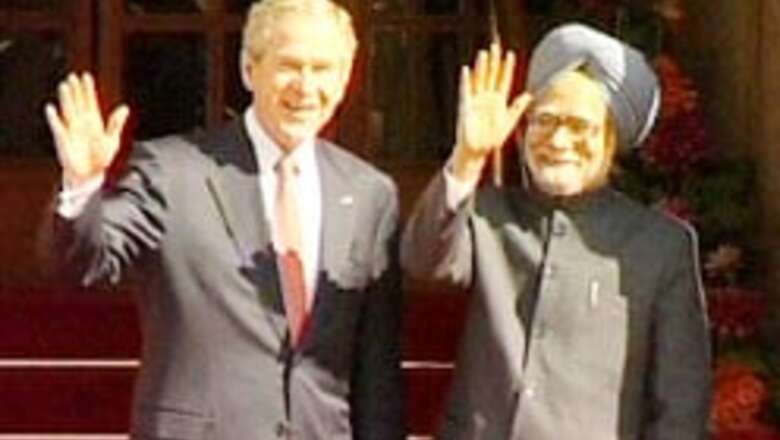
views
New Delhi: Even as US President George W Bush is all set to sign the India nuclear bill into a law on Monday, the UPA Government is likely to come under fire in Parliament.
A heated debate is expected from its Left allies and the Opposition, who say the deal threatens national sovereignty.
Though the Lok Sabha is to have a discussion without voting despite opposition demand for one, the Left supporting the government as well as the Opposition National Democratic Alliance (NDA) are likely to attack the Government over the deal.
Prime Minister Manmohan Singh is expected to speak during the discussion scheduled to last two days in the Lok Sabha. External Affairs Minister Pranab Mukherjee may reply to the debate. The Rajya Sabha will take up the matter for discussion on Tuesday.
While the Bharatiya Janata Party (BJP) says that the nuclear deal, passed by the US Congress, would subject India to intrusive US scrutiny, the Communist Party of India-Marxist (CPI-M)-led Left Front warns that it would affect the country's independent foreign policy.
The deal allows the US to share nuclear know-how and fuel with India to help energise its economy.
"The act passed by the US legislature leaves us in no doubt that the purpose of the deal is to impose on India, bilaterally, conditionalities which are worse than those incorporated in the NPT and the CTBT (Comprehensive Test Ban Treaty), in perpetuity and without an exit clause," the BJP alleged.
In a statement last week the party said: "The deal is more unequal than ever before. The principle of parity, on which the prime minister had placed so much emphasis, stands abandoned. Reciprocity and sequencing of the various steps, again something on which the prime minister had placed so much emphasis, have been given a go by."
The BJP alleged that the US act has "seriously compromised the independence" of India's foreign policy. The CPI-M, which has been opposing the agreement since the beginning, also echoed similar fears.
"We fear it will adversely affect our independent foreign policy and strategic autonomy... The US Act goes beyond the Indo-US nuclear deal. It's an attempt to bind India. It will affect our autonomy," CPI-M general secretary Prakash Karat said.
Some Indian nuclear scientists have raised objections on certain clauses - such as one that says India can't reprocess nuclear fuel - saying it would adversely affect New Delhi's efforts to be self-sufficient in nuclear energy.
However, the ruling Congress party's decision-making body, the Congress Working Committee, had extended full support to the government.
In a statement in parliament, Mukherjee, who termed the US legislation a "big step", said the country's strategic programme was outside the purview of the discussions between the two countries. "We will not allow external scrutiny of or interference with the strategic programme," he said.


















Comments
0 comment